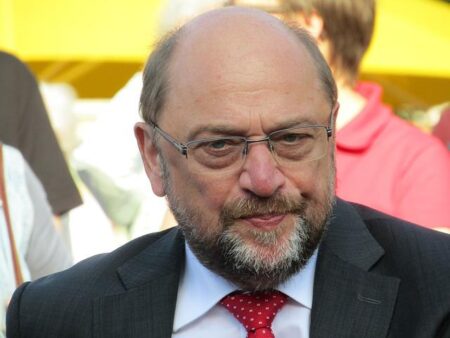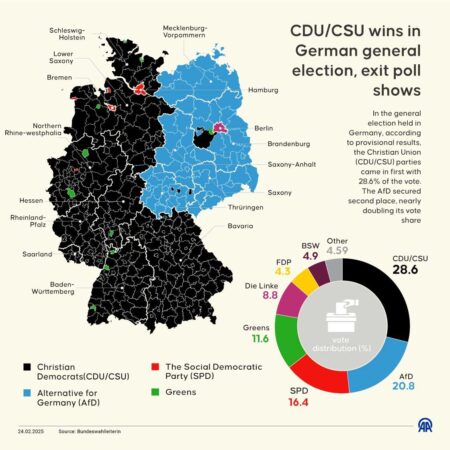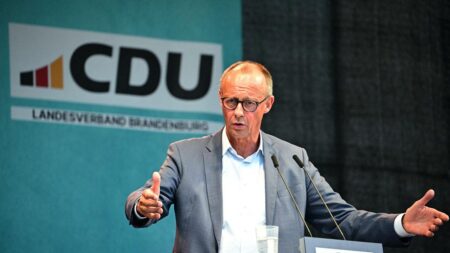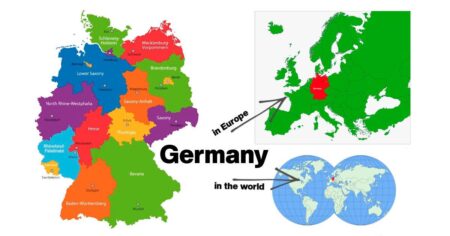Starting January 8, 2025, travelers to the UK from Germany will face new entry requirements. The US Embassy advises all travelers to check for updated regulations and necessary documentation to ensure smooth passage into the UK. Stay informed.
Browsing: Germany
In a tragic incident in Mannheim, Germany, a driver rammed a car into a crowd, resulting in the deaths of two people and injuring 11 others. Authorities are investigating the motives behind the attack, which has left the community in shock.
Germany’s upcoming election promises to significantly influence Europe’s stance toward a more assertive Trump administration. As voters head to the polls on Sunday, the future of key policies on transatlantic relations and global cooperation hangs in the balance.
A tragic incident in Mannheim, Germany, has left two people dead and multiple others injured following a car ramming attack. Authorities are investigating the motive behind the attack, which has shocked the local community and raised security concerns.
A recent report by POLITICO Europe highlights concerns that China could leverage its dominance in wind turbine production to exert economic pressure on Germany. This potential “blackmail” could threaten Germany’s energy transition and industrial competitiveness.
Germany’s far-right party, AfD, has doubled its vote share in recent elections, signaling a significant shift in the country’s political landscape. This surge raises concerns about the influence of extremism and poses challenges for traditional parties in maintaining stability.
Secretary of Defense Pete Hegseth is set to embark on an official trip to Germany, Belgium, and Poland. The visit aims to strengthen military partnerships and discuss ongoing security challenges in Europe, underscoring the U.S. commitment to NATO allies.
Germany’s next leader faces pressing global challenges, unlike previous administrations that focused inward. As geopolitical tensions rise and the EU’s stability is tested, proactive engagement on the world stage becomes imperative for Germany’s future.
In the wake of Germany’s recent elections, the CDU/CSU and SPD are set to commence preliminary talks aimed at forming a potential coalition government. These discussions mark a crucial step in shaping the country’s political landscape following a tightly contested vote.
The recent German election has stirred political dynamics, revealing key trends: increased voter fragmentation, the rise of green policies, diminished support for traditional parties, a focus on climate action, and the enduring power of coalition governance.
Germany‚Äôs Autobahn, often celebrated for its lack of speed limits, is a driving enthusiast’s dream. However, it may be overrated. Traffic jams, varying speed zones, and strict regulations can hinder the experience, revealing a more complex reality behind the speed legend.
Germany’s Friedrich Merz is engaged in challenging negotiations aimed at increasing the nation’s defense budget. As international security concerns rise, the discussions reflect the balancing act between fiscal restraint and military readiness.
Following his election victory, Friedrich Merz faces the challenge of uniting Germany’s fractured political landscape while asserting strong leadership in Europe. Analysts at Chatham House examine whether he can navigate these demanding responsibilities effectively.
Recent claims that the new German government has flown in Afghan migrants have been debunked. Official sources clarify that these individuals were part of evacuation efforts initiated under the previous administration, not a new policy initiative.
Germany’s Rhineland is gearing up for its vibrant Carnival celebrations, but heightened security measures are in place to ensure public safety. Authorities are deploying additional personnel and monitoring events closely, aiming to balance festivity with precaution.
Germany‚Äôs chancellor-in-waiting emphasizes the need for “real” independence from US influence, advocating for a more autonomous foreign policy. As global dynamics shift, questions arise about the feasibility of this vision and its implications for transatlantic relations.
Germany’s recent election signals a significant shift in its political landscape, with major implications for the EU. Key takeaways include a coalition government that emphasizes climate action and social reforms, potentially altering Germany’s leadership role in Europe.
Surfing tourism is surging as countries like the United States, Germany, Italy, Japan, Singapore, Australia, Brazil, Turkey, and the UAE expand their coastal destinations. These nations are enhancing surf-related infrastructure, attracting global enthusiasts and boosting local economies.
Friedrich Merz, a prominent figure within Germany’s conservative CDU party, is gaining traction as a leading candidate for Chancellor. With a focus on economic stability and traditional values, Merz’s leadership could reshape Germany‚Äôs political landscape.
In a recent address, Germany’s Friedrich Merz criticized former President Donald Trump’s influence on U.S. politics, expressing concerns over rising populism. As he attempts to forge a coalition, Merz highlights the need for stable transatlantic relations amid global challenges.




















